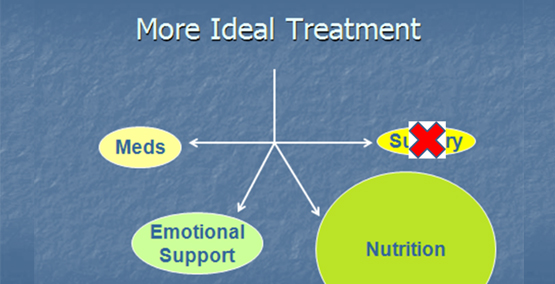
The Latest and greatest treatments for IBD: What to believe
What’s the best IBD medicine for me? Confusion on television and in your inbox....
See moresign up for our newsletter
SubscribeYour gastroenterologist is likely to be your primary guide for managing your IBD. You may also work with other healthcare professionals ( a dietitian, psychologist, or surgeon) in a Comprehensive or Combined Approach to treatment.
A dietician can help you manage your IBD nutrition. The dietician can help you figure out which foods may cause problems for you and alternative foods to replace. He or she will also ensure that you are getting all the nutrients you need since this can be a problem in IBD. If you go, you can do several things to get the most from the visit. Next.


Getting the emotional support you need is important. Living with a disease can be hard and having resources available for you or your child can help a lot in your path to recovery. A psychologist or counselor can be part of your treatment team. She or he can teach you tools such as mindfulness that can help you take control. Other resources for support can include online tools like our website and IBD support groups.
A surgeon may also be part of your team. He or she will work with the other professionals in your comprehensive care to learn about your disease history. Surgeons are usually the last line of defense if your disease is not responding to medicine and diet. Your surgeon can help remove troublesome areas and make sure that you heal properly after surgery.
The ultimate goal of the combined approach is to avoid surgery and heal the disease. Other goals include reducing pain and symptoms and improving the quality of life. Through integrating all healthcare professionals, the combined approach should make managing your disease as easy and effortless as possible. This will free you to live the life you want to without your disease defining it for you!

This article, as well as all others, was reviewed and edited by a member of our Medical Advisory Board.
Subscribe Be the first to know